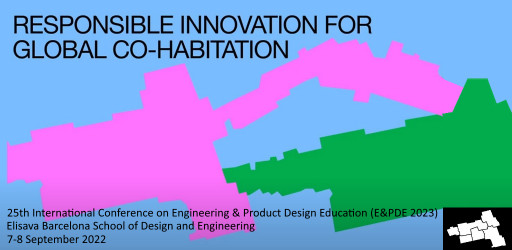E&PDE 2023 - 25th International Conference on Engineering & Product Design Education
E&PDE 2023 will bring together representatives from education and industry interested in sharing new perspectives on design education. The conference will provide a forum for educators, practitioners and students. (Submission Deadline: 27 Feb 2023)





